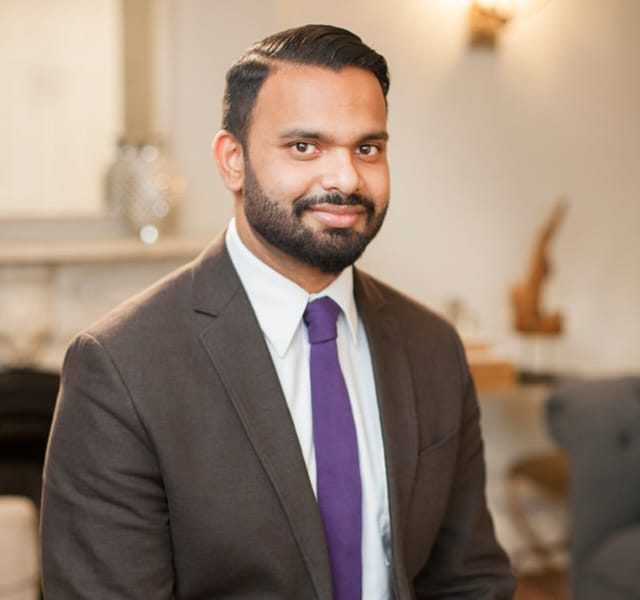Ask a Family Therapist
with Sunil Boodhai, MSW (RSW), BEd., manager of Renascent’s Family Care Programs, therapist and counsellor.
Q: My daughter is addicted to alcohol. She drinks every day and I don’t know what to do. She sometimes blames me for her drinking, saying that I stress her out with my nagging. I don’t know how this happened to her. She was an amazing child and teenager, but she changed drastically once she started university. What did I do wrong?
– Molly H.
A: Hi Molly. I’m glad you have written in and asked this important question. I hear this question a lot from parents and partners, and sometimes even from children of parents struggling with addiction.
What did you do wrong? In relation to your daughter’s addiction and current behaviour, I would argue that you did not do anything wrong. At Renascent we treat addiction as a disease and we believe there is both a genetic and an environmental component to developing this disease. The genetic component would be inborn and not something anyone could control. The environmental factor is the availability and use of alcohol or other substances. When these factors meet, addiction sometimes occurs and the addicted person’s life can spiral out of control before they recognize that there is a problem. Families are affected, leading the addicted people to feel guilt and shame. They lash out and blame loved ones for their situation when they cannot understand what has occurred in their own lives.
When treating family members, we often talk about the three Cs: You did not Cause it, you cannot Control it, and you cannot Cure it. It is our hope that recognizing these three C’s, you will come to an understanding of how to let go of trying to fight this disease for your daughter and redirect your focus onto your own well-being. (As for your daughter, she is going to have to take responsibility for her actions and face her alcoholism with the assistance of others who have faced the disease as well. She will have to submit to a treatment program like the one offered at Renascent, as well as continue to attend Alcoholics Anonymous as part of her ongoing daily recovery. This is her best chance for finding sobriety and staying sober.)
You did not Cause this disease and you do not cause your daughter to drink. This disease is like any other — think of it like diabetes, another chronic disease with no cure, but effective ways of treatment. There is nothing you can say to her that would cause her to drink; she drinks because her disease is dictating that she drink alcohol. She only feels normal when alcohol in in her system. She may tell you that this is your fault in order to manipulate your feelings so that you stop trying to discuss her alcoholism with her, but she is simply using your concern against you. Only speak to your daughter about her addiction when she is sober and set some clear boundaries for her regarding her consumption of alcohol. For example, you could set the boundary of not allowing drinking in your home, or refusing to spend time with her while she is drinking.
You cannot Control this disease. I have just recommended setting boundaries with your daughter regarding her drinking. That may sound like I am asking your to attempt to control her alcohol consumption, but that’s not the intention of setting boundaries. Boundaries are meant to protect you, not to control the alcoholic. There is nothing you can do to control the drinking. If left untreated, your daughter will drink when her cravings are too strong, no matter what the circumstances. Keep in mind that your daughter can’t even control her own drinking, so there’s no reason to believe you can control it for her. Your energy is better spent setting the boundaries necessary to protect yourself with the hope that your daughter will be motivated by the consequences of her actions to take the right steps to find recovery.
You cannot Cure addiction. Addiction is a treatable disease, but there is no cure. Any thought that something is going to happen that will cause your daughter to snap out of her alcoholic behaviour and quit drinking is unrealistic. This is going to be a difficult road for you and your daughter as you both seek the path to your own recovery. Waiting and hopping for a cure will leave you sad, disappointed, angry, and frustrated. Taking actions to protect your time, energy, and resources is the only thing that will keep you from being pulled under by your daughter’s addiction.
There is hope for both of you, and it begins with letting go of the idea that you caused your daughter’s addiction or that you can control or cure it for her. As you begin to take the actions to protect yourself, this may be the catalyst that encourages your daughter to take responsibility for herself and her disease. Either way, you are on your path to your own recovery.
Molly, I would urge you to get in contact with the family team at Renascent and register for one of their introductory Family Care Programs. I would also urge you to begin attending local Al-Anon meetings in your community. There you will find numerous people focused on taking care of themselves in the midst of dealing with addiction. I am sure this will be of great help to you.

